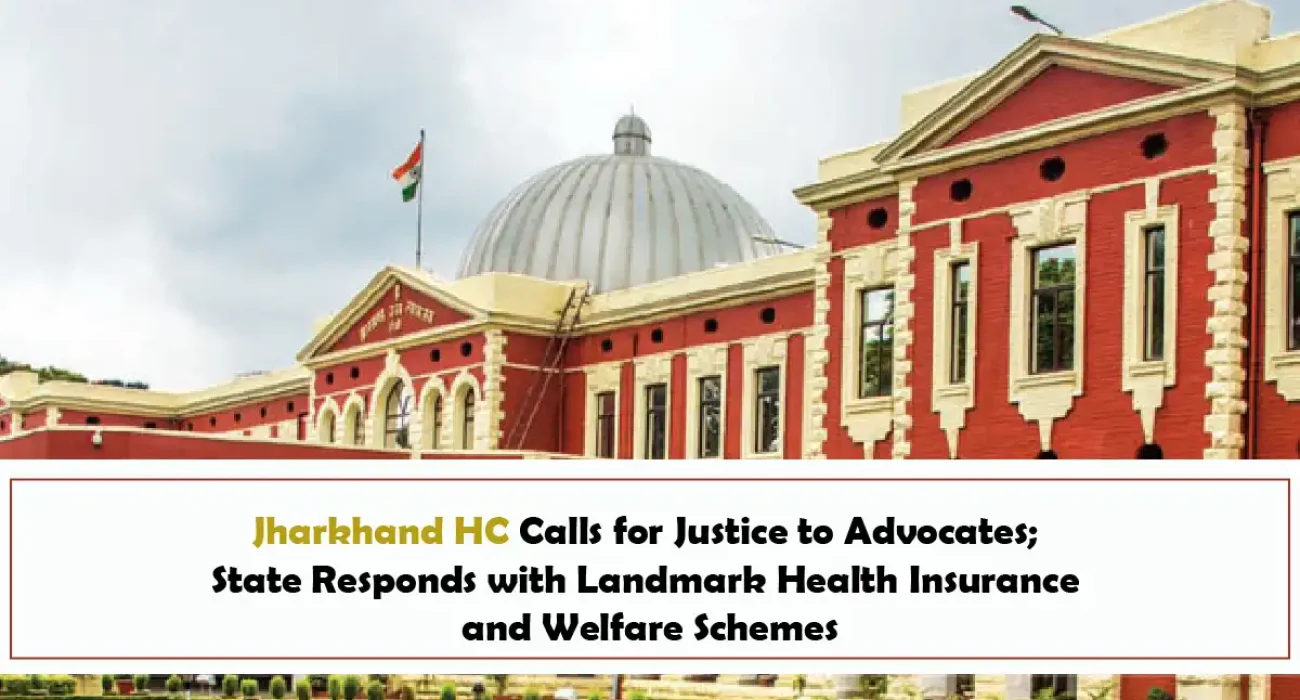

Table of Contents
ToggleThe petitioner, Bidesh Kumar Dan, filed a Public Interest Litigation (PIL) Bidesh Kumar Dan vs UOI before the Jharkhand High Court, raising serious concerns about the lack of institutional welfare measures particularly health and insurance benefits for advocates in the state. The case highlighted the systemic neglect of a community that plays a vital role in delivering justice.
Advocates, despite being indispensable to the justice system, have been denied basic welfare and health insurance benefits by both the State and the Union Government. This lack of support violates the principles of social justice and dignity.
The State and Union of India, along with the Bar Council of India (BCI) and Jharkhand State Bar Council (JSBC), responded with assurances to explore possible mechanisms and sought time to gather instructions. No active welfare scheme was already in place for advocates.
The Division Bench comprising Chief Justice Dr. B.R. Sarangi and Justice Sujit Narayan Prasad made strong remarks on the systemic injustice faced by lawyers, “It appears that though the lawyers’ community is helping the people by discharging his duty in dispensation of justice, but they are not being given justice either by the State or by the Union.”
The Court stressed the essential role of lawyers and their economic vulnerability, “Many of the lawyers are not able to maintain properly because of paucity of fund… the benefit of insurance should be extended to the lawyers as a whole.”
The Court directed both the State and Union governments, as well as bar councils, to formulate guidelines ensuring health and life insurance for advocates, underlining that justice must also be served to those who serve justice.
In a Cabinet meeting on 6th September 2024, Jharkhand Chief Minister Hemant Soren approved a ₹5 lakh medical insurance cover for over 30,000 advocates. Two additional schemes were also sanctioned:
At a state-level event held and the CM officially launched the Advocates Health Insurance Scheme under the Rajyakarmi Swasthya Bima Yojana, marking a historic first in India. The scheme became effective from 1st May 2025.
“This scheme is a step towards ensuring dignity and security for our respected legal professionals. The government has taken it upon itself to shoulder the healthcare responsibilities of this vital segment of society.” — CM Hemant Soren
The Advocate Health Insurance Scheme, born from judicial concern and state responsiveness, represents a fundamental shift in acknowledging the social security needs of legal professionals.
Credits: Adv. Deeksha Rai
IAW resources
Browse our help directory